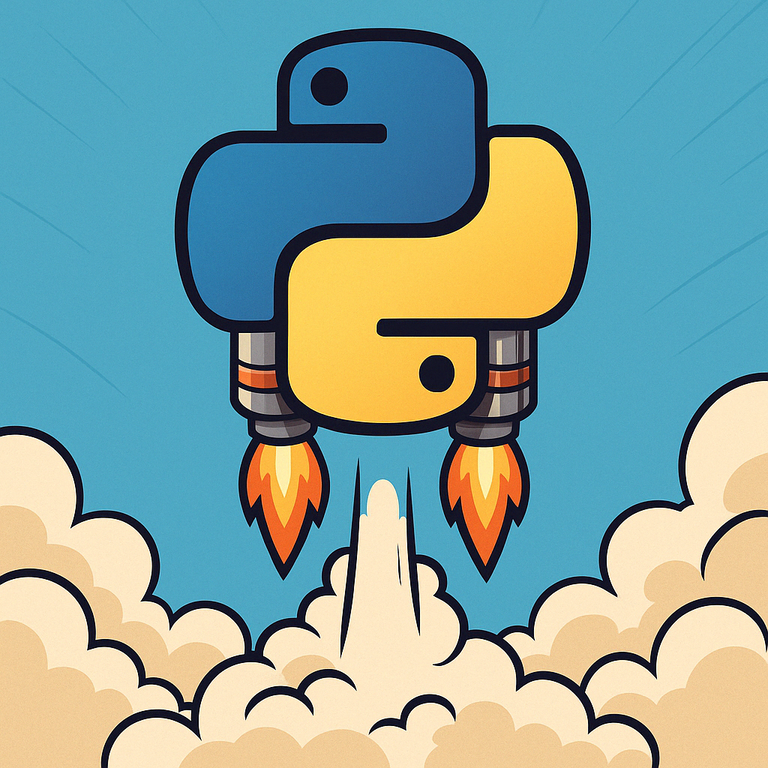
Python 3.14 is planned for release around October, and it's packed with changes designed to make Python run faster and help programmers write clearer, less confusing code.
One of the biggest themes in this update is performance. Several changes under the hood mean your Python programs could run noticeably quicker, especially for certain tasks.
Yes, Python, the popular programming language used for everything from websites to science, is getting an update that promises a speed boost over even the gains in 3.13.
Let's explore the highlights of what is coming.
When Can We Get Python 3.14?
The team working on Python has a schedule:
- May: First "beta" version. This is like a preview version. After this, no major new features will be added, only fixes for problems (bugs).
- May - September: More beta versions and then "release candidates" (almost final versions) will come out for testing.
- October: The final, official release of Python 3.14.
Making Code Clearer and Safer
Sometimes, code can be written in a way that works but is hard for humans to understand or might hide mistakes. Python 3.14 introduces some changes to guide programmers toward clearer code.
Less Confusion in finally Blocks (PEP 765)
In Python, you can use try...finally blocks. Code in the try part is run, and no matter what happens (even if there's an error), the code in the finally part always runs afterwards.
This can lead to confusing situations. Consider this:
def confusing_function():
try:
return 1 # Tries to return 1
finally:
return 2 # BUT this always runs last, so it actually returns 2
def infinite_loop_maybe():
i = 0
while i < 5:
try:
print("Trying iteration", i)
return # Tries to exit the function
finally:
i += 1
print("Running finally, i is now", i)
continue # This forces the loop to the next step, ignoring the 'return'!
This function would loop forever if not for the while condition!
What’s New: Starting with Python 3.14, using return, break, or continue inside a finally block will give you a SyntaxWarning. In a future Python version, this will become a SyntaxError.
Smarter Type Hints (PEP 648)
Python allows "type hints" that say what kind of data a function expects. Before 3.14, Python tried to evaluate those hints immediately, which caused issues if the type hadn’t been defined yet.
# Old Python (before 3.14)
def process_data(data: MyDataClass) -> ProcessedData:
pass
class MyDataClass:
pass
class ProcessedData:
pass
What’s New: Python 3.14 delays evaluating type hints until needed. This lets you use types defined later in the file—or even missing types—without causing startup errors.
Simpler Error Handling Syntax (PEP 765 clarification)
Before Python 3.14, you needed parentheses when catching multiple exception types:
# Before Python 3.14
try:
pass
except (ValueError, TypeError) as e:
print(f"Caught an error: {e}")
Now, you don’t:
# Python 3.14 onwards
try:
pass
except ValueError, TypeError as e:
print(f"Caught an error: {e}")
Python Gets a Speed Boost!
A New Engine: The Tail Call Interpreter
Python 3.14 introduces an experimental interpreter engine that avoids the usual loop. Each step jumps directly to the next one (a tail call). This could boost speed up to 13%.
Faster Asynchronous Operations (asyncio)
Code using asyncio may run up to 10% faster.
Quicker File Handling
- Reading small files is about 15% faster.
- Reading large files is 3–5× faster due to a bigger default buffer size (128 KB instead of 8 KB).
Faster Compression (zlib)
zlibcompression is 70% faster with slightly less compression.- On Windows, Python uses
zlib-ngfor another 80% boost.
Other Speed Gains
- Base64 decoding: 10× faster
- Module importing: up to 6× faster
- UUID generation: 20–40% faster
Looking Ahead: Future Performance Work
Just-In-Time (JIT) Compiler
Python 3.14 includes an experimental JIT compiler. So far, the average speedup is about 2%, but it's a foundation for the future.
Free-Threaded Python (No GIL)
A separate, experimental build removes the Global Interpreter Lock. Some multi-threaded tasks are much faster (2–4×), but others are slower. Still early days.
Other Important Changes
map()has a newstrict=Trueoptionmemoryviewnow supports type hintsconcurrent.futures.InterpreterPoolExecutorruns code in isolated sub-interpretersPath.copy()and related file methods added topathlibunittestshows colorful test outputhttp.serverrespects dark modejson.toolnow available from the command lineZipFileemits warnings if not properly closedpickleuses protocol 5 by defaultFraction.from_number()andDecimal.from_number()added- Unicode 16.0 supported
- New MIME types added
- UUIDs 6, 7, and 8 supported
Bottom Line: A Faster, Cleaner Python!
- Faster interpreter, faster IO, and early JIT work
- Safer
finallyblocks and smarter type hints - Foundations for a JIT and No-GIL future
Performance matters and Python can be more readable than some other languages. It will be interesting to see how it turns out.
Thanks for your contribution to the STEMsocial community. Feel free to join us on discord to get to know the rest of us!
Please consider delegating to the @stemsocial account (85% of the curation rewards are returned).
You may also include @stemsocial as a beneficiary of the rewards of this post to get a stronger support.